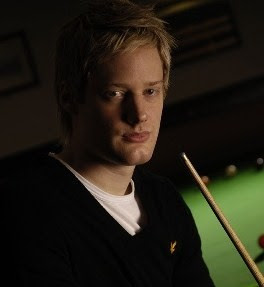 New world champions have much to get used to.
New world champions have much to get used to.There’s the higher profile, the increased expectation – from media, fans, fellow players and, perhaps most crucially, themselves – and a greater number of off table commitments.
Joe Johnson once told me that after he won the world title in 1986 he would have photographers waiting for him when he got off the plane on his holiday.
Snooker doesn’t command such an interest in the media now but Neil Robertson is still going to have to adjust to the various demands on his time and scrutiny of his performances.
You can just imagine some of the comments if he makes a bad start to the new season.
What will stand him in good stead is his inner steel, which he has demonstrated time and time again.
Robertson has appeared in five ranking tournament finals and won them all, an admirable record. The way to silence any doubters there may be is to keep on winning: no player can do more than that.
After a couple of unsuccessful attempts at a pro career while still very young, Robertson returned to the circuit in 2003, set up camp in Cambridge and has impressed ever since.
Winning the world title was reward for all the sacrifices he has made and will have to continue to make. Fatherhood complicates the issue too – albeit in a happy way – and it will be interesting to see what sort of Neil Robertson returns to the UK for the new campaign.
How hungry will he be for further silverware? How determined will he be to press on from this and cement a place among the all time greats?
Snooker has a low media profile in Australia but it has risen considerably since his Crucible triumph and he has been doing his his bit with media appearances. Fingers crossed it can translate into a professional event there.
Neil is good for the game. Having an Australian world champion is a boost to snooker’s global aspirations, he has a clean cut image and plays in an attractive way. He shows his personality in the arena and is honest and direct in media interviews. His charisma is real, not constructed.
His victory in Sheffield was partly overshadowed by the John Higgins scandal and what became a poor final but all that matters is that his name is on the one trophy that means more than all the rest put together.
It will always be there. He will always have the memories of his celebrations in the arena with his mother who had flown from the other side of the world to share the moment.
But it is to the future to which Robertson should now look.
Some world champions have enjoyed continual success in the season that followed their win – Steve Davis, Stephen Hendry, Higgins and John Parrott being examples.
Others – Johnson, Peter Ebdon and Shaun Murphy – found it harder going.
Much will depend on how much time Robertson actually has to get his head down and work on his game. I’d imagine he hasn’t spent much – if any time – practising since winning the world title but any rustiness will soon be exposed when he returns to action.
Then there’s the question of what he himself is expecting to happen this year. What goals will he set himself – the top the rankings? To win a certain number of tournaments? To retain the world title?
It might be better not to set targets at all. Few wanted to draw him before, even fewer will want to do so now.
Robertson is a positive sort of guy and will almost certainly look not at the pitfalls and what can go wrong in his year as world champion but just revel in the experience of being introduced as such.
What better feeling can there be in snooker?
He may go on to win more world titles, he may never win another.
In the meantime, he should enjoy the feeling while it lasts.
More...





Comment